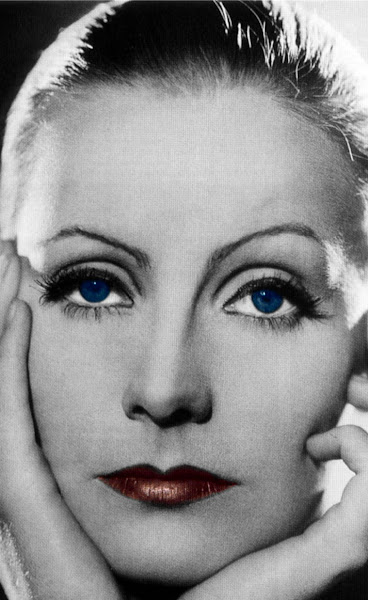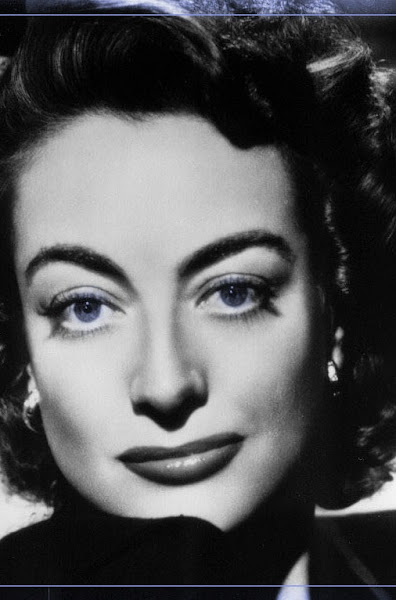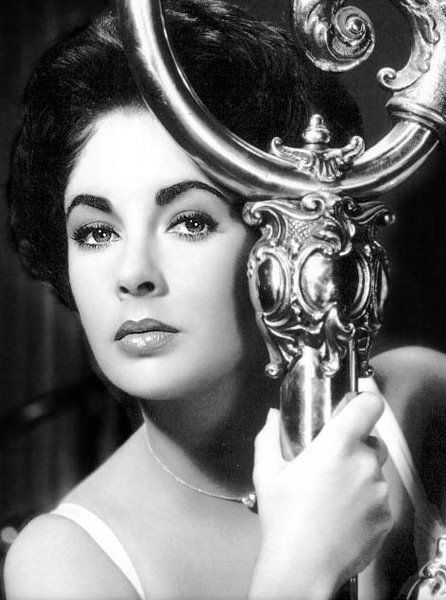 *** out of ****
*** out of ****
Irony, suspense, wry humor, and an impending loss of innocence fulfill “A Girl Cut in Two,” the most recent film by Claude Chabrol, an important director of the turn-of-the-60s French New Wave, whose contemporary work still finds important recurring characteristics of those influential works, including deliberate cinematography and unsettling editing. A co-writer of the film's screenplay, Chabrol's extensive filmmaking expreience allows him to craft an elaborate story that lends itself to a visually impressive look at a destructive romantic triangle.
The film is about a young, perky television weather girl, Gabrielle (Ludivine Sagnier), who finds herself torn between love for a much older author, Charles (Francois Berléand), and the attentions of a perfectly-coiffed, spoiled, and brash young suitor Paul (Benoit Magimel). As her relations with Charles reach levels of great sexual passion, trouble ensues as Charles refuses to leave his oblivious wife. Meanwhile, Paul pursues Gabrielle and attempts to gain her love through proposing marriage and money. The demands of both men frustrate Gabrielle until forces beyond her control culminate with the collision of violence and passion, leaving her with shattered innocence.
The initial scenes between Gabrielle and either Charles or Paul define their relationships for the rest of the film, Charles offering a passionate sexual relationship to adoring Gabrielle without leaving his devoted, duped wife, and Paul establishing an uncomfortable, awkward relationship with Gabrielle. A powerful shot is when Charles first introduces himself to Gabrielle in her mother’s bookstore, where he is conducting a signing for his new book. It is a medium close-up shot full of energy and sexuality as he huskily speaks into her ear — the hand of his assistant, Capucine, is the only thing that draws him back out of his lust. This particular shot is important in establishing the sexual relationship which will be developed between Charles and Gabrielle. On the other hand, the other example is at dinner with Paul for the first time — the shot is framed to set up an uncomfortable situation, both for Gabrielle and for viewers. A huge column in the middle of the shot awkwardly divides Gabrielle and Paul on either side of the table at which they are sitting. The rest of the scene consists of a sequence of shots and reverse shots that continue to separate them by never putting them in the same frame together and continuing to suggest a level of discomfort.
While cinematography in the film establishes the love triangle that defines the film, it also represents the characters. Among other important scenes, in the scene in Philippe’s office, the shot is framed so that the lamp on his desk dissects Gabrielle, who is seated and a girl cut literally in two. This situation clearly bothers her, so she moves the lamp downward and out of the way. In the next shot, he works quickly to close his laptop, so the lamp again dissects her in the frame. This scene is important in adding a literal level to the figurative status of Gabrielle divided between destructive relationships. Interestingly enough, she is uncomfortable with the feeling of being cut, but on a figurative level, it hardly affects her or changes her attitude toward her relationships. It is also curious to note that it seems important to Philippe, as a male, to maintain the dissection of Gabrielle already perpetrated by the two men in her life.
In terms of acting, Ludivine Sagnier is particularly adept as Gabrielle, endowing the role with energy and naivety that conveys her innocence and charm that generates great appeal. With each wound inflicted, or cut, on her psyche, viewers share her pain. François Berléand and Benoît Magimel are equally believable in their roles as Charles and Paul, respectively, but the real gem in the film is Caroline Silhol as Mme. Gaudens, who delivers a pleading monologue near the end of the film to appeal to the sympathies of Gabrielle to save her son. Though I had already been impressed with the way she portrays Mme. Gaudens with aloofness, in this scene, I was transfixed by her emotional intensity in candor and delivery.
Irony, treasured by the French, establishes and defines the tone of the film. For example, a great deal of thematic irony centers on the adage: “What’s in a name?” Gabrielle Aurore Deneige evokes ideas of purity and innocence with its references to snow and the aurora borealis, the Northern lights. The name Charles Saint-Denis turns out to have been created as a pseudonym—a lie, as the “Saint” has been assumed by a man who is far from such a designation (though he does invoke it in describing his blindly devoted wife). Finally, at one point in the film, someone comments on the name “Gaudens,” realizing it as a symbol of corruption in the way “Tartuffe” has come to stand for a religious hypocrite and “Candide” signifies naivety. These character definitions through nomenclature identify characters in terms of symbolism.
Meanwhile, in terms of Gabrielle’s precarious situation, the titular figurative “cutting” of Gabrielle indicates her triangular romantic relationship. With a married man unwilling to leave his wife and a relentless suitor, viewers can already surmise how the film is going to end, but the film never ceases to offer a few surprises anyway. For example, the ways in which events transpire, including the climax and its motivations, are certainly shocking.
All in all, “Girl Cut in Two” is certainly worth seeing if you enjoy tragicomedies about bad romantic relationships, but more specifically, if you are looking for good acting or an compelling contemporary French film by a director deeply embedded in the roots of modern French cinema.
“A Girl Cut in Two” is playing now at the Belcourt Theatre.
Originally published in the November 12 issue of Versus Magazine: Entertainment & Culture
November 12, 2008
A Girl Cut in Two (Une Fille Coupée en Deux)
November 3, 2008
Random Musing: Joaquin Phoenix, Retiree

So it might be week-old news now, but I was still surprised to hear two-time Oscar-nominated actor, Joaquin Phoenix, brother of dearly-missed Oscar-nominated actor River Phoenix, will be putting his acting career behind him. "I want to take this opportunity to give you an exclusive..." was how he initiated his red-carpet interview with E!'s "Extra" correspondent Jerry Penacoli at a charity event last Monday for the Association of Hole in the Wall Camps. The day was also the 34th birthday of Phoenix and four days before the 15th anniversary of the death of Phoenix's older thespian brother.
Phoenix said that "Two Lovers," his upcoming romantic drama with Gwyneth Paltrow and Vinessa Shaw, will be his final onscreen role. His confession: "This will be my last performance as an actor. I'm not doing films anymore... I've been through that. I've done it...." While this divulgence surprised E!'s correspondent, Phoenix seemed perturbed, so he retorted, "I'm dead serious."
Here is the full interview:
Phoenix seemed emphatic that Casey Affleck, fellow actor and brother-in-law at his side the other night, will take up his reins: "It's Casey's time now."
I find the circumstances bizarre, actually. While Yahoo! Movies' Matt McDaniel reports "Phoenix is apparently giving up acting to pursue music, a passion of his since he learned to play guitar to play the role of Johnny Cash in 2005's 'Walk the Line,'" I think he has an ulterior motive for leaving the film industry. Call me crazy, but I find that the 15th anniversary of the death of his brother is a good motive. River Phoenix was set to become one of the greatest actors of his generation until a drug overdose cut his burgeoning life and career short in 1993. River Phoenix's career began in the mid-80s with a series of popular and critically-acclaimed roles in films such as "Stand By Me" and "Running on Empty." Joaquin Phoenix began his acting career in the 80s, too, with small, insignificant parts in television shows, but he did not score his big film break until 1995's "To Die For," directed by Gus Van Sant, who had also worked with River in 1991 in "My Own Private Idaho." Look at the timing - River dies in 1993, and Joaquin finds success in 1995. Also look at the connection - has Joaquin Phoenix's career been a sort of continuation of the career of River? Was his career a long tribute to River? Does Joaquin really live in his big brother's shadow without us realizing it? Granted, Joaquin is a great actor in his own right, but in McDaniel's article, he cites that Phoenix's career change might be partially inspired by the need to expel some demons. Perhaps his "career change" is a need to break away from the trade of his brother to find himself. Only Joaquin knows this answer, but for the future, perhaps his (to-be-released) music will provide us some insight.
"Two Lovers," Phoenix's final film, premiered earlier this year at the Cannes Film Festival to mostly positive reviews and is scheduled for release on February 13th, 2009. I suppose if you have to go out, best to go out with a bang, eh?

.jpg)

.jpg)
.jpg)
